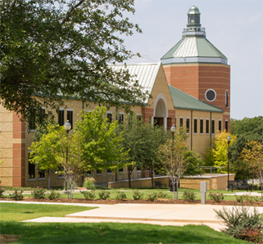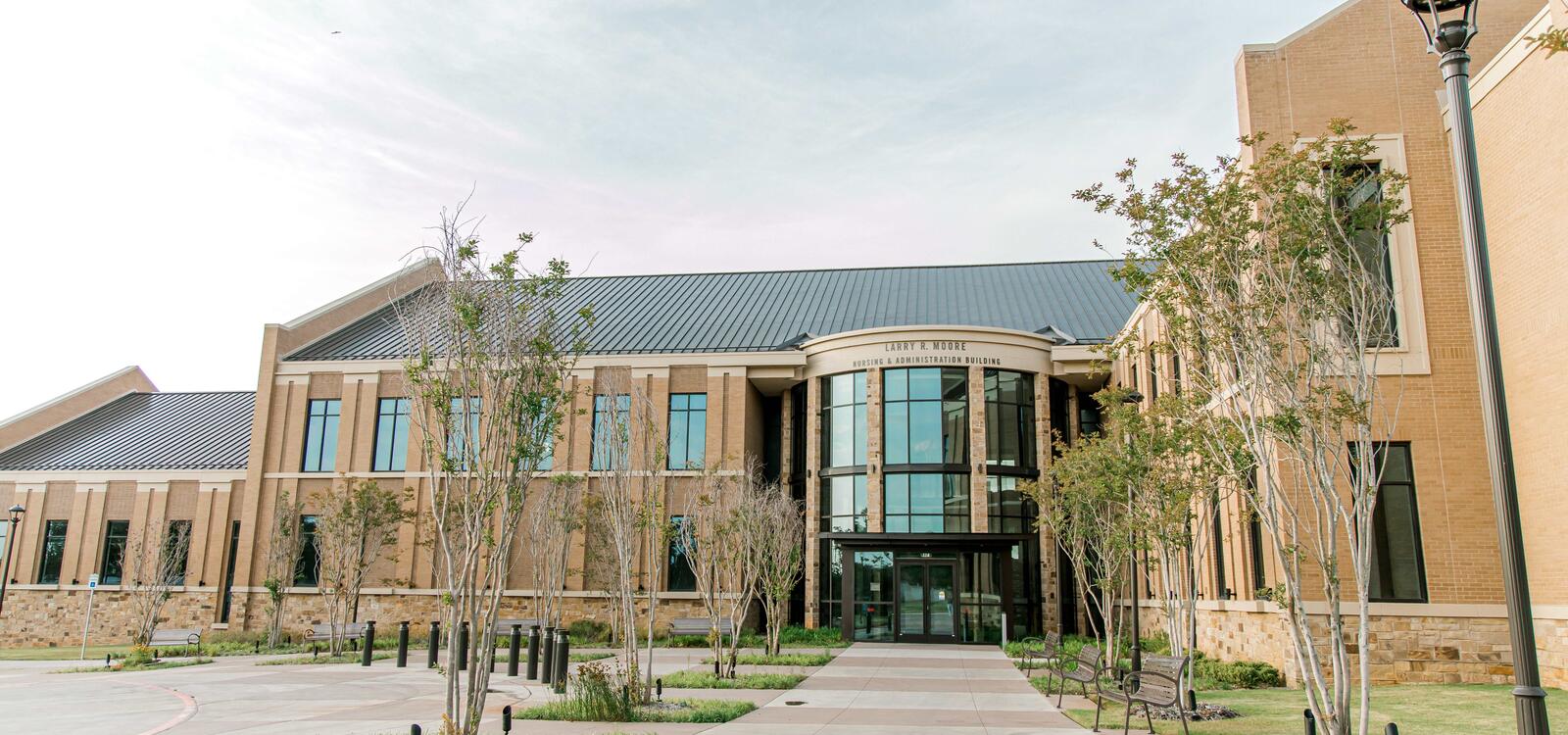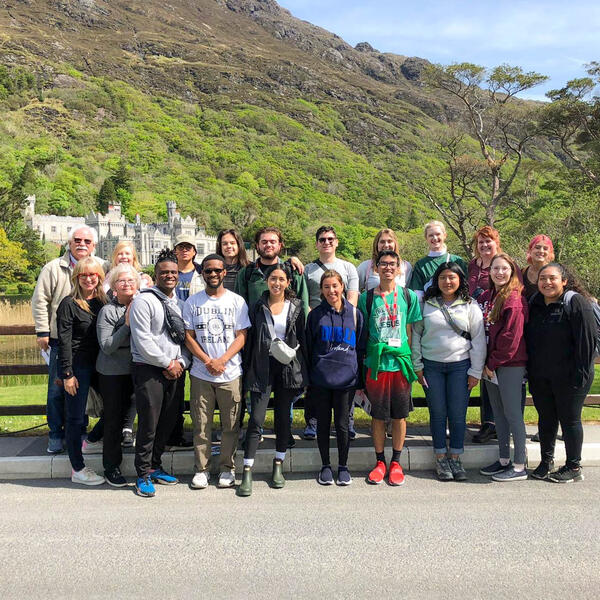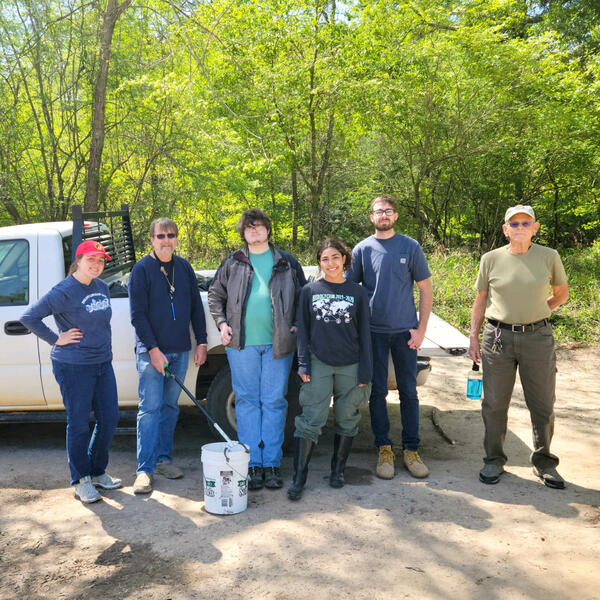Three Women; Three Generations; Three Calls to Serve
Three Women; Three Generations; Three Calls to Serve
Southwestern Adventist University has a history of building and maintaining long-lasting and meaningful relationships with its students, faculty, staff and other constituents. It also has a value system built on service and giving. This is a special school whose influence and impact reach far beyond the Mizpah Gate as shown in the experiences of three women of SWAU.
Laurice Durrant, former chair of the Department of Nursing at SWAU, was born in Egypt in 1927. Since moving to the United States, she has returned to her home country several times, the most recent of which was in 2018. During this particular visit, her best friend Ranya Maher, who is the Adventist Church’s women’s ministries director in Egypt, took her to visit a former assistant who had been ill for several years. The woman’s mother was unable to work while caring for her, and her father and the family’s breadwinner had passed away three years before. The family was starving.
“There is no welfare in Egypt, so I knew we had to do something,” Durrant recalls. So she asked Ranya to buy groceries for the family. The family, in turn, split what they were given with the woman next door--also a widow, and also starving.
“Something had to be done, with God’s help,” Durrant says.
And so the Food Bank Ministry was created. Every month, Durrant sends her savings down to Ranya to be used to stock the food pantry, and every week, community members line up to receive their bag of supplies--rice, beans, garlic, peas, lentils, onions and more. Those in need are also provided with blankets and clothes. In every bag is included a tract about health or a topic of a spiritual nature, because Durrant believes in providing for the physical needs of the people as well as their spiritual needs.
“Somehow we never have to send anyone away empty-handed,” Durrant says. “God, the original source of all blessings, provides every time.”
She is also currently sponsoring Ranya’s former assistant’s brother to finish college, as he had dropped out in order to support his mother and sister.
Education is important to Durrant, who sponsors a long-time endowed scholarship for girls at Nile Union Academy in Egypt in honor of her parents who sacrificed much to educate their five children. As most parents in Egypt don’t have the funds to educate all of their children, they tend to focus on educating boys, so Durrant felt called to support girls who wanted an education, as well. This same passion led Durrant to initiate three endowed scholarships at SWAU--one each in nursing, religion and music.
Likewise, Anita Zelaya Youngberg (‘92, ‘95, ‘97) found an unexpected calling in the place she was born and raised, a place she has always called home.
“I was born and grew up in the mountains of Honduras. Since it was my home, I never really considered it as a ‘mission field,’ even though the rest of the world perhaps saw it that way,” Youngberg admits. “I wanted to travel to a remote place maybe in Africa or South America, sailing down the Amazon in a medical boat helping villages deep in the jungle. That was my idea of a mission field.”
Between 1992 and 1997, Youngberg earned an associate degree in nursing and bachelor’s degrees in both biology and nursing from SWAU. Notably during this time, she was elected the first female student association president the university had ever had, after serving a year as a village senator and authoring successful proposals. After graduating, she was deciding where to go next to practice her nursing skills; the options were mission work in Africa or Brazil--a job offer on the table from Loma Linda University Medical Center--and a traveling nurse career with a fellow SWAU nursing grad (also a native of Honduras) who was ready to strike out on the road with her.
When Hurricane Mitch devastated Honduras, Youngberg suddenly knew where she would be going.
“My grandpa and my mom were at the helm of the non-profit my grandparents founded in the 1950s,” explains Youngberg. “During the hurricane relief efforts, both kept telling me they could really use my help and asked me to stay on long-term. I was resisting because I thought I wasn't ready to return home just yet. Finally, I gave in, and I ended up loving it. I am so happy I accepted”
Today, Youngberg divides time between visiting nieces and nephews while working remotely from Texas, and Honduras, where she is the director of program services for Pan American Health Service, Inc., a non-profit which provides nutritional rehabilitation to malnourished children as well as education and technical training to teens from mountain families struggling with food insecurity.
“I had a choice,” she acknowledges, “and my conscience wouldn’t let me walk away. One of the hardest challenges I’ve had is stepping into a leadership role at the non-profit during a transitional period, but my time in leadership with the SA at SWAU and with AIA (Adventist Intercollegiate Association) prepared me well for the challenges.”
A generation younger, Anabella Lopez (‘17) teaches fourth grade writing at a public school near her alma mater. She, too, finds her life purpose in giving back, not just in teaching the next generation, but in giving to others, as well. It is a life purpose she discovered at age 12.
“I stumbled across this organization called Charity Water one day, and I was instantly fascinated,” Lopez shares. “Their whole purpose is to provide clean water for places around the world that don’t have it. From that point on, I was hooked.”
For her 15th birthday, Lopez accepted the Charity Water birthday challenge and asked everyone to skip the gift for her, and simply donate $15 to Charity Water. She did it again the next year. And the next.
“I did the same thing for both my high school and college graduations,” she says. “Over the years I’ve probably raised $10,000-$12,000 for Charity Water.”
In 2020, Lopez was invited by a pastor friend to come to Brazil and speak about her passion for giving for a youth rally on missions.
“A lot of people don’t realize that giving a community water gives them more than just water,” she explains. “For women who are used to spending 8 hours a day walking to get water, it means they now have more time to have their own jobs. Whenever a well is built in a community, Charity Water teaches the local people to maintain it, hiring them to repair and maintain the well. Clean water is more than just something to drink—it is a huge opportunity for whole villages and families.”
All three of these women are united not only by their connection to SWAU, but through their passion for giving to others, caring for communities and encouraging others to do the same.
Three women; three generations; three calls to serve. One university to guide them; one passion for giving; one God inspiring them all.
For information on how you can give back to SWAU, visit swau.edu/give.










